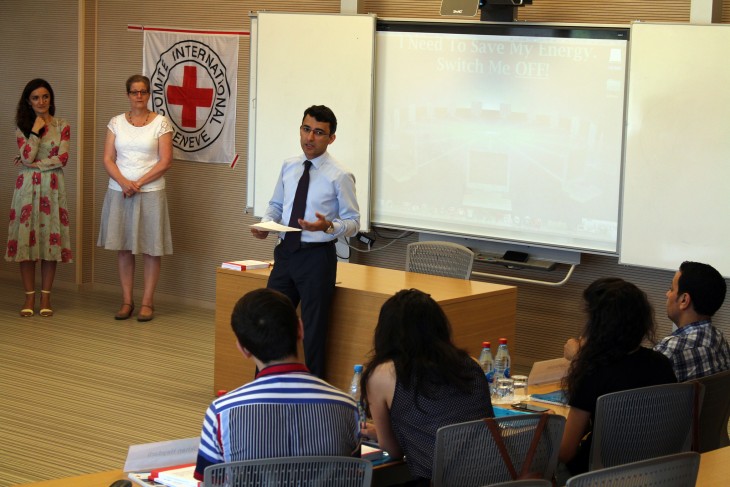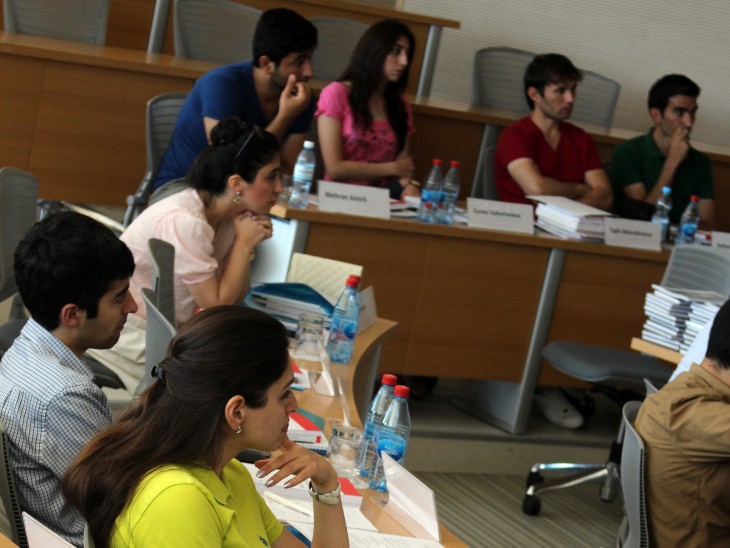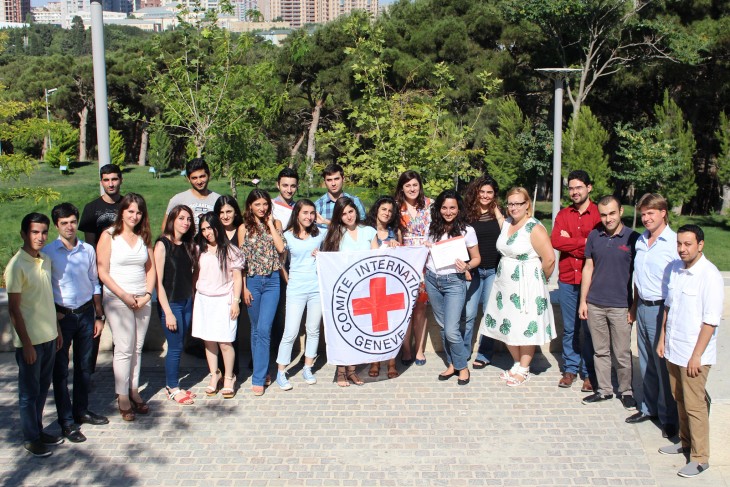Azerbaijan: Summer school on international humanitarian law – resting by learning

Summer – usually a time for vacations, sun and hanging around with friends. But for one group of students, summer was a time for new things, in the form of studies and IHL.
This July, for the second time, the ICRC and ADA University held a summer school on IHL in Baku. This was the second such course, following the resounding success of the 2014 event. This beautiful and hospitable university once again hosted students from all over the Azerbaijani capital.
The participants were lawyers, international relations specialists and sociologists from Baku State University, ADA University and the Academy of Public Administration. This diverse group of motivated young people were all here to learn about IHL and its development. The event also provided a lecture platform for experts from Azerbaijan, Georgia and Belarus, which contributed to the quality of the discussions on case studies covering real-life conflicts.

ADA University, Baku, Azerbaijan. Denise Duran, head of the ICRC delegation in Azerbaijan and Fariz Ismailzade, vice rector of ADA University, at the opening of the summer school. CC BY-NC-ND / ICRC / I. Huseynova
The final session of the event was a discussion on the current challenges to IHL. Given that these students will be among tomorrow's professionals contributing to the development of IHL, it was encouraging to listen to the thoughtful and mature discussion of topics under consideration today in Geneva, New York, Brussels, Moscow, Delhi and Nairobi.

ADA University, Baku, Azerbaijan. The summer school brought together students from Baku State University, ADA University and the Academy of Public Administration. CC BY-NC-ND / ICRC / I. Huseynova
Ahmad Shariq, graduate student, ADA University: "The dynamic nature of war, with cyber warfare, drones, robots and suicide attacks, brings with it the need to update IHL and to formulate new laws to tackle these issues and protect civilians during conflict. War is dynamic, so IHL must be dynamic if it is to become more effective. There is a need for more people who have expertise in the field of IHL, who are familiar with the current challenges to IHL and who can formulate laws that respond to the dynamics of war."
Elnur Karimov, undergraduate student, Academy of Public Administration: "The main challenge today is to ensure that law prevails over politics in crisis situations inflamed by greed and anger – to get people to follow the sacred rules of IHL."
Elvin Abbasli, graduate student, Baku State University: "The changing nature of war is a major challenge for IHL. Conventional war fought on battlefields between two opposing sides is a thing of the past. The change has been particularly marked since the end of the Cold War, with terrorism becoming a major means of waging war. One consequence has been the elimination of the distinction between civilians and combatants, where terrorists use civilians as human shields, or disguise themselves as civilians so they can attack others or protect themselves. There is widespread ignorance of IHL, but even those who know the rules often ignore them. All these factors make it more difficult to apply IHL in today's conflicts."

ADA University, Baku, Azerbaijan. The students and presenters after the summer school. CC BY-NC-ND / ICRC / I. Huseynova
Elnur Imanbayli, graduate student, ADA University: "One of the main challenges to the implementation of IHL and the work of the ICRC is human behaviour and, more specifically, a lack of courage and responsibility when it comes to making important decisions. Most of today's conflicts are taking place in regions beset by such social problems as weak media or poor education. Those societies produce decision-makers, soldiers and others who are less rational, less responsible and less educated. With such people in charge, it becomes even more difficult to promote IHL, as they are more interested in winning wars than in acting rationally and humanely. I therefore believe that the ICRC should work with local and international institutions that are aiming to bring enlightenment, in order to enhance the success of its IHL activities long-term."
The summer school has ended, but it has left the participants with plenty of food for thought and research over the coming academic year. Once again, the summer IHL experience has boosted knowledge and understanding of IHL among the young, motivated professionals of tomorrow.



